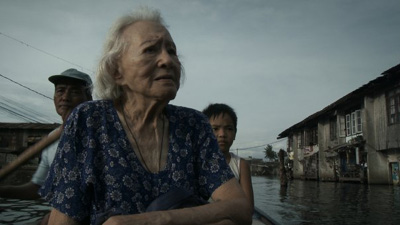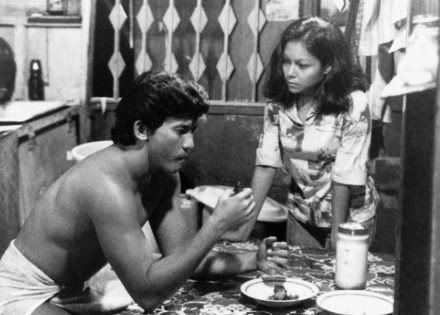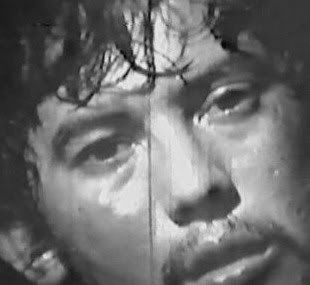El Jaibo.
Years before his satirical digs towards the bourgeoisie crowd with masterful films like "The Discreet Charm of the Bourgeoisie" and "The Phantom of Liberty", Luis Buñuel was already out there stressing a significant point or two. And in "Los Olvidados'" case, it is the tragedy of children forced into the life of crime not because they want to but because there really is no other option; that and maybe some lack of guidance and parental warmth. Can you really blame a petty crime solely on the small hands that have done it?
With a visual preference that is geared more towards neorealism, this film specifically highlights Luis Buñuel's humbler days as a filmmaker both in imagery and themes. But being the audacious auteur that he always was, he has successfully combined the grittiness of social realism with the visual profundity of surrealism. What resulted was a brave, candid and ultimately gut-churning film that emphasizes the sheer decay of youth life in post-war Mexico that's as potent to this day as it was when it was released more than 60 years ago.
Youth angst, as we all know, is a favorite topic amongst filmmakers. Be it in the context of formal education, societal disconnection or simple case of immature alienation, directors have wallowed in them, sometimes to pretentious extent. But only a few films have really embraced the topic of adolescence with an intention to expose something alarmingly rancid and truthful. One of them is "Los Olvidados".
Years before "City of God" has rocked the film world with its fearless portrait of youth criminality in the titular Rio de Janeiro neighborhood, "Los Olvidados" has already left a mark in the world of cinema with its intense depiction of spontaneous criminality committed by the most fragile of bodies and the youngest of minds. In every country's underbelly, there are criminals who will steal and kill for money. Luis Buñuel has highlighted the sad fact that among those low-lives are young ones who doesn't even know what's left from right, right from wrong. The truth hurts indeed.
Generally about the reality of youth criminality, "Los Olvidados" is focused on three facets, represented by three unforgettable characters: El Jaibo (Roberto Cobo) the full-fledged criminal, young Pedro (Alfonso Mejia) the conflicted one, and Ojitos (Mario Ramirez), the kindred boy who got dragged in the middle of it all. With these characters, Buñuel was able to explore the extent of their reality by mixing both hope and despair. Hope that one of them may ultimately choose to escape and lead a better life, and despair that maybe all of them are, after all, futilely treading a path towards a moral cul-de-sac. And between those, there were Buñuel's chickens.
All throughout the film and even in one of the characters' dream, chickens were ever-present. How do these feathery animals really figure in on the film's whole thematic plateau? "Look into the eyes of a chicken and you will see real stupidity," the great Werner Herzog has stated. Though that is too derogatory a remark, I think that it speaks well for what Buñuel's chickens may ultimately signify in this film. With that blunt statement about chickens, maybe what Herzog mistakes as idiocy, Buñuel sees as naivety. Perhaps it's not stupidity that they represent but innocence. And in every chickens smashed into smithereens (as in the film), it is innocence lost. Maybe that also applies quite well with the notorious chicken sex scene in "Pink Flamingos".
Back in 1950 when the Mexican government was eager for its citizens to see, feel and sense progress even when it means suppressing truth itself, "Los Olvidados" is incredibly audacious, what with its decrepit portrayal of urban squalor and looming sense of hopelessness. But this, I think, is also an urgent film of terrible necessity because it shows something painfully real. "Los Olvidados", with its timeless statement about impoverished youth life, is one of those truly powerful cinematic creations that constantly remind us that not all children are for the good old sing and dance.
FINAL RATING







